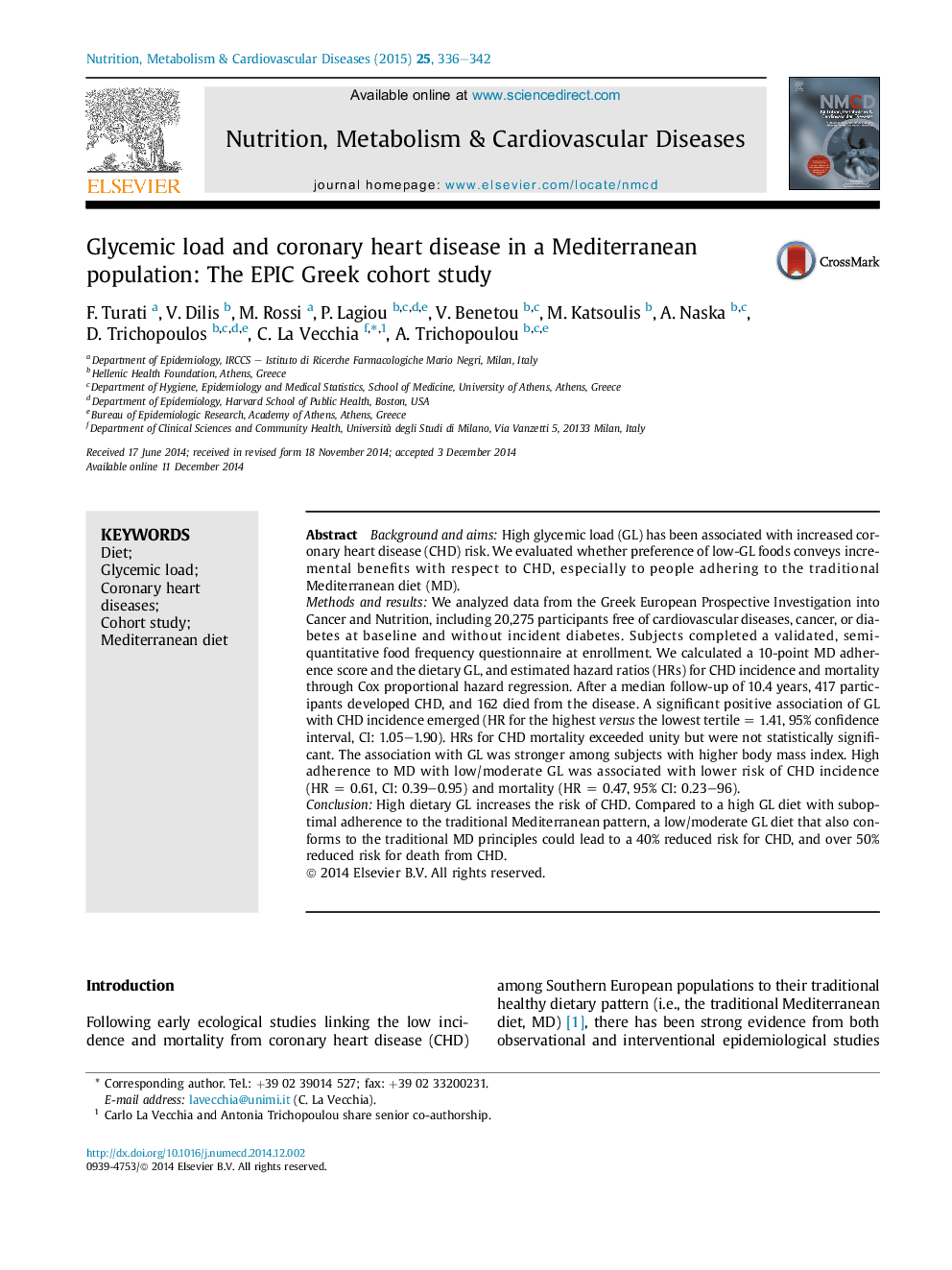| Article ID | Journal | Published Year | Pages | File Type |
|---|---|---|---|---|
| 3001896 | Nutrition, Metabolism and Cardiovascular Diseases | 2015 | 7 Pages |
•We evaluated the relation between GL and the risk of coronary heart disease.•We analyzed data from the Greek EPIC cohort.•High GL increases the risk of coronary heart disease.•Data confirm a beneficial role of the Mediterranean diet on coronary heart disease.•Choosing low-GL foods within the Mediterranean diet improves its beneficial effect
Background and aimsHigh glycemic load (GL) has been associated with increased coronary heart disease (CHD) risk. We evaluated whether preference of low-GL foods conveys incremental benefits with respect to CHD, especially to people adhering to the traditional Mediterranean diet (MD).Methods and resultsWe analyzed data from the Greek European Prospective Investigation into Cancer and Nutrition, including 20,275 participants free of cardiovascular diseases, cancer, or diabetes at baseline and without incident diabetes. Subjects completed a validated, semi-quantitative food frequency questionnaire at enrollment. We calculated a 10-point MD adherence score and the dietary GL, and estimated hazard ratios (HRs) for CHD incidence and mortality through Cox proportional hazard regression. After a median follow-up of 10.4 years, 417 participants developed CHD, and 162 died from the disease. A significant positive association of GL with CHD incidence emerged (HR for the highest versus the lowest tertile = 1.41, 95% confidence interval, CI: 1.05–1.90). HRs for CHD mortality exceeded unity but were not statistically significant. The association with GL was stronger among subjects with higher body mass index. High adherence to MD with low/moderate GL was associated with lower risk of CHD incidence (HR = 0.61, CI: 0.39–0.95) and mortality (HR = 0.47, 95% CI: 0.23–96).ConclusionHigh dietary GL increases the risk of CHD. Compared to a high GL diet with suboptimal adherence to the traditional Mediterranean pattern, a low/moderate GL diet that also conforms to the traditional MD principles could lead to a 40% reduced risk for CHD, and over 50% reduced risk for death from CHD.
